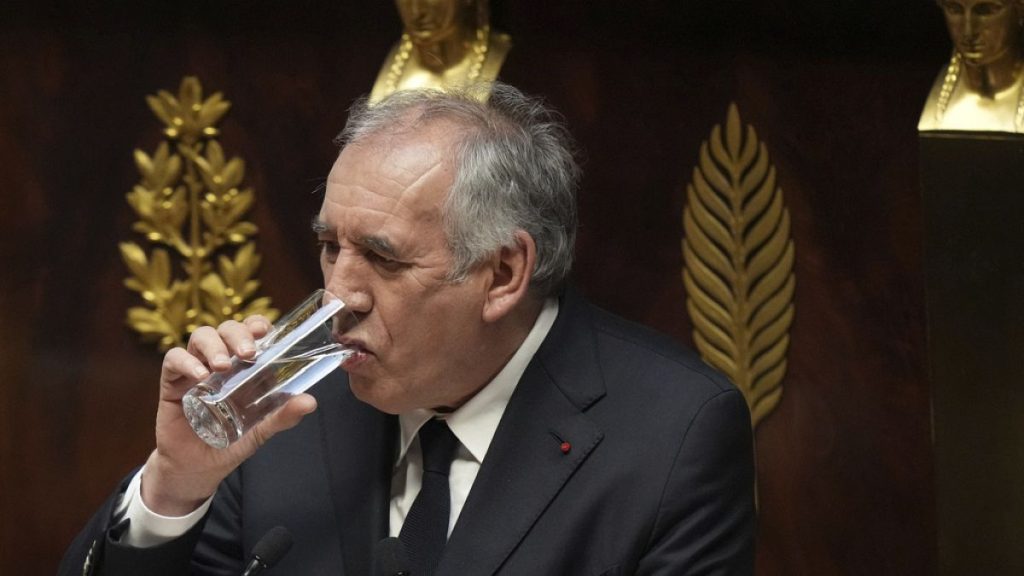France’s Persistent Budget Deficit and the Tightrope Walk of Fiscal Reform
France has long grappled with one of the most persistent and substantial budget deficits in the eurozone, a challenge that has brought down governments and continues to pose a significant threat to the nation’s economic stability. The current administration, under Prime Minister François Bayrou, faces the daunting task of navigating a complex political landscape to implement crucial fiscal reforms while avoiding the pitfalls that led to the downfall of his predecessor, Michel Barnier. The European Union has endorsed France’s revised plans to bring its budget deficit under control by 2029, offering a glimmer of hope, but the path forward remains fraught with obstacles. The key challenge lies in securing the necessary political support for potentially unpopular measures, particularly given the absence of a legislative majority for President Emmanuel Macron’s party.
The European Commission’s recent approval of France’s multi-year fiscal strategy represents a critical step in addressing the nation’s chronic budget woes. This strategy, developed in accordance with the reintroduced and more flexible EU Treaty fiscal rules, acknowledges the need for a gradual approach to deficit reduction, contrasting with the more front-loaded proposals of the previous administration. The plan outlines commitments to undertake significant structural reforms in key areas such as unemployment insurance, pensions, and renewable energy. These reforms are designed to address the underlying structural issues contributing to France’s fiscal imbalance, aiming for long-term sustainability rather than short-term fixes. However, the success of these ambitious plans hinges on the ability of the government to navigate the complexities of French politics and gain the support of a fragmented legislature.
The political tightrope walk for Prime Minister Bayrou is particularly precarious given the sensitive nature of the proposed reforms. The French public has demonstrated a strong aversion to austerity measures, as evidenced by the widespread protests and political turmoil surrounding previous attempts at pension reform. Bayrou has already made concessions to left-leaning lawmakers, softening the impact of proposed spending cuts, in an attempt to build consensus. This delicate balancing act requires him to appease diverse political factions while adhering to the commitments made to the EU and maintaining the overall credibility of the government’s fiscal strategy. The collapse of the Barnier government serves as a stark reminder of the political risks associated with unpopular fiscal reforms.
The legacy of France’s ballooning deficit, which reached 6.2% of its GDP in 2024, significantly exceeding the 3% limit set for eurozone members, continues to cast a shadow over the nation’s economic outlook. This high deficit places France in a vulnerable position, limiting its fiscal flexibility and potentially undermining investor confidence. The government’s commitment to structural reforms is aimed at addressing the root causes of this fiscal imbalance and restoring long-term stability. The reforms in areas like unemployment insurance and pensions are intended to improve the efficiency and sustainability of these systems, contributing to a more balanced budget in the long run. However, these reforms are likely to face resistance from various interest groups, posing a significant political challenge for the government.
The experience of the previous Barnier government underscores the difficulty of implementing fiscal reforms in France’s politically charged environment. Barnier’s attempt at cost-cutting measures triggered a backlash from lawmakers, ultimately leading to a vote of no confidence and the collapse of his government after just three months. This episode highlighted the deep divisions within the French legislature and the public’s sensitivity to austerity measures. The current government must learn from this experience and carefully calibrate its approach to reforms, seeking to build consensus and minimize political fallout. The appointment of Eric Lombard, a seasoned banker, as the new finance minister signals a potential shift in strategy, emphasizing a more pragmatic and collaborative approach to fiscal management.
The road to fiscal stability for France is undoubtedly a challenging one. The government’s commitment to structural reforms, endorsed by the EU, offers a potential path forward. However, the successful implementation of these reforms hinges on the ability of Prime Minister Bayrou to navigate the complex political landscape and secure the necessary support. The absence of a legislative majority for President Macron’s party requires delicate negotiations and compromises with other political factions. The government must strike a balance between fulfilling its commitments to the EU and addressing the concerns of the French public, all while avoiding the political pitfalls that brought down the previous administration. The coming months will be crucial in determining whether France can finally bring its budget deficit under control and secure a more sustainable fiscal future.

